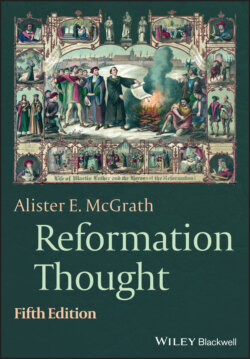Читать книгу Reformation Thought - Alister E. McGrath - Страница 18
The Call for Reform
ОглавлениеBy the beginning of the sixteenth century, it was obvious that the church in western Europe was in urgent need of “reform of head and members.” It seemed to many that the life-blood of the church had ceased to flow through its veins. The church legal system was badly in need of overhaul, and ecclesiastical bureaucracy had become notoriously inefficient and corrupt. The morals of the clergy were often lax and a source of scandal to their congregations. Clergy, even at the highest level, were frequently absent from their parishes. In Germany, it is reported that only one parish in fourteen had its pastor in residence. The Frenchman Antoine du Prat, archbishop of Sens, turned up for only one service at his cathedral throughout his ten years in the archdiocese: moreover, his presence and role at this service were somewhat passive, in that it was his funeral.
Many senior ecclesiastical posts were secured through questionable means on dubious grounds, generally relying upon the family connections or the political or financial status of the candidates, rather than their spiritual qualities. Thus, Duke Amadeus VIII of Savoy secured the appointment of his son to the senior position of bishop of Geneva in 1451; if anyone had misgivings about the fact that the new bishop had never been ordained and was only eight years of age, they were wise enough not to mention them in public. Pope Alexander VI, a member of the Borgia family (famous for its lethal dinner parties), secured his election to the papacy in 1492 despite having several mistresses and seven children, largely because he bought the papacy outright over the heads of his nearest rivals. Niccolò Machiavelli put the loose morals of late Renaissance Italy down to the poor example set by the church and its clergy.
